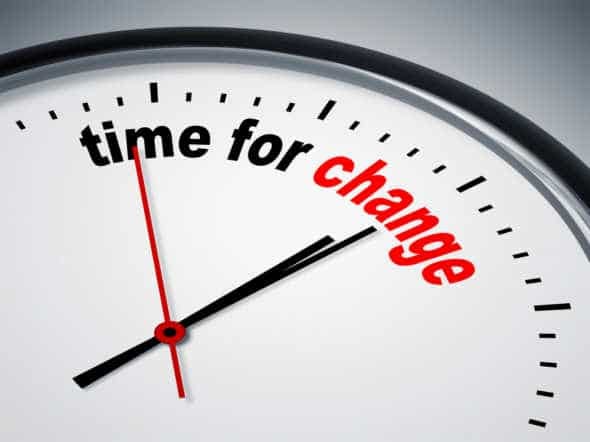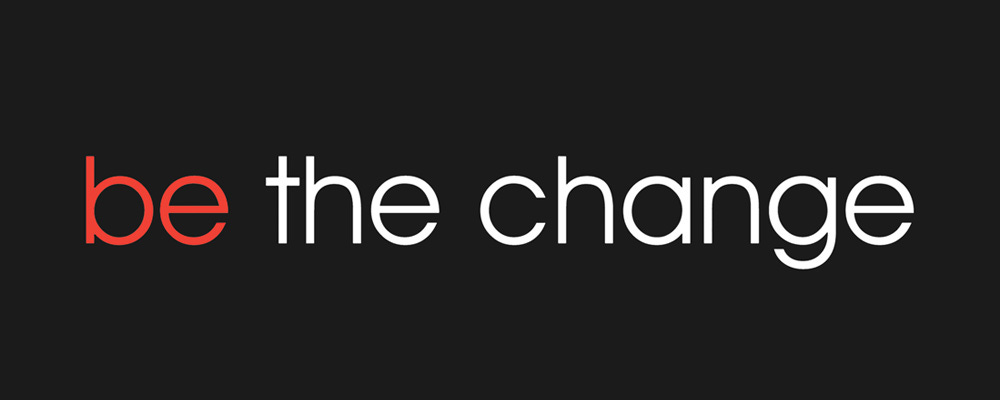How long before you change what you are doing?
Answer - When what you are doing no longer works!
Three weeks.
That’s it. If, within three weeks of using any system you are not seeing the desired results (or upward trending) you change and do something else. This is a basic rule of thumb when you are evaluating the efficacy of almost anything: a course of medical treatment, a marketing strategy, a new design layout, etc... Some people go 4 weeks, because a month fits nicely into a calendar, but most universally accepted is three weeks.
In the private sector, if you are not experiencing a positive Return on your Investment (ROI) then you try something different! Simple as that. I know how teachers love to say, “But we’re not a business!” That’s unfortunate, because according to Investopedia, “If an investment's ROI is net positive, it is probably worthwhile”. In other words, if it is good, keep it and if it is not good, replace it. Administrators and teachers, how many systems in your school or classrooms aren’t producing a net positive, but you are still using them just because…? Three stagnant programs I see most often are:
programs designed to increase student achievement
procedures in place to reduce poor behavior
procedures aimed to eliminate absence/tardiness
Schools are not changing these programs because schools are resistant to change!
Let me tell you a story of how resistant schools can be to change. Years ago, a school where I taught used an EGB (Electronic Grade Book) that was disliked by all, but no one wanted to “rock the boat” so we just kept using it and hating it. One of the teachers on our team said she was using JupiterEd. She purchased an individual yearly subscription (about $40 at the time) and at every staff meeting she would expound on the virtues of her new discovery: ease of taking attendance, ease of recording grades, ease of assigning work and lots more. Given the fact that we hated our current program, you might think we would jump at the chance to try something new. You would think, but you would be wrong. Nobody listened and nobody wanted to change. We were, “stuck in our own stuff”, as Zig Ziglar would say!
After several months of this teacher going on and on about the program (like she just discovered coffee!) I had enough. That night, I went home and did some research on JupiterEd. The company had a clean look and had solved many of the problems that made us hate our our current EGB. The next staff meeting, I was a convert! I joined forces with the teacher and together we soon after we piloted the program for our school. Well, the whole school wasn’t on board, so our principal allowed us to use it just for our team. It was progress!
When I started at my next school, they were using the same old EGB program we hated (and just replaced) at my former school. I pitched the idea of switching over to JupiterEd to my principal and though interested, she was a little cool about the idea. She said, “Teachers don’t like change” and “We’ve been using this for years” and “I’m not sure if this JupiterEd is any better than what we have”. She could have easily taken an hour to look it over and see how it works, but that did not happen. I decided to keep (and pay for) my own personal JupiterEd program and because it was easier and I just transferred my grades to the school system. But I was like a junkyard dog and kept pushing to adopt JupiterEd. Finally - after two years - she agreed to change. TWO YEARS TO MAKE A CHANGE!
The company came in, showed everyone how it worked, I became the official go-to guy for answers (until we got a few more converts on board). You would have thought that we all lived happily ever after. No such luck. Many disliked the old system so much they were easy to bring on board, but others were a bit more resistant. “It’s different!” “I liked the old system!” A year later, everyone (including administration) realized this was a far better EGB and they were very happy with it - except one teacher. She hated JupiterEd. You would have thought I ran over her dog! Every day I saw her, in every one of our staff meetings, she bemoaned the fact that I pushed for the school change over to JupiterEd (which she hated!) Right up until the day she retired, she kept at it. She never stopped complaining about the change. I’m sure she is still talking about it even though happily retired.
My point is that teachers are reluctant to change. Let me rephrase that. Most people are resistant to change because they don’t have to change! I often paraphrase a saying I learned many years ago: “Most men lead lives of extended mediocrity.” It means we go on with our lives never wanting to stir the pot or make waves and in doing so live in mediocrity. Schools are like this. Anyone who has ever taught knows this is true. There are opportunities that present everyday and yet, schools and teachers are reluctant to try them because, “That’s not how I do it”. This single expression is responsible for more failure in schools than any other one sentence, along with a few others:
“My direct deposit works fine and I’d like to keep it that way.”
“I’m on probation and don’t want to risk it.”
“I like my pension.”
“I’m not in trouble with my AP (and I want it to stay that way so keep your crazy ideas to yourself!)”
“I could never do that.”
“My kids would never get it.”
So we say, “That’s not how I do it.”
That’s not how I do it is an expression rarely heard in the private sector. In the private sector changes are made because we must change - to grow our business, to get ahead, to grow our income, because our livelihood depends on a positive ROI!
So how does this apply to you, the classroom teacher (or administrator)? I’ve been reading articles about how teachers really deserved the holiday break (and you do!) because they were so stressed out from the first half of the year. So what are you going to do when you go back? This is where I find school to be so exciting and wonderful! There are so many changes you can make in your classroom to fix what is broken. You know what doesn’t work and you are starting with a clean slate - a new marking period! What will you change?
On-Time Attendance? Is your current policy working? Are your classes rushing to get to your class on time, seated and ready to work? If not, what are you doing to affect change? Do you think there is nothing you can do?
Poor Behavior? What are you doing now to confront poor behavior in your class? If what you are doing isn’t working, then you must change that!
Student Achievement? Are you just grading tests and quizzes and posting grades or are you teaching students a direction to take through goal setting? Teach them what all these numbers mean! We are in a new environment (a brave new world) and so we must use new ideas and new strategies to fix new problems that aren’t being addressed. The old ideas, procedures and approaches are not working.
Phone Calls Home? Do you call for every lateness or absence? Do you call home for all behavior issues? If not, why not? If not then you are assuming ALL responsibility for lateness and behavior. That is just not a sustainable strategy! Do you have a set script when calling home? If not, make one!!! Or are you just “winging it” depending on the situation? That too, is not a sustainable approach.
Remember, if you are not part of the solution, you are part of the problem. 2024 brings with it a new time for you to make change. Use it to your advantage! Though you may not see it, there is much latitude for change you can make in the classroom. Go for it!
Happy New Year!!!
Dr. Cubbin
website - schoolgoalswork.com
articles - schoolgoalswork.substack.com






